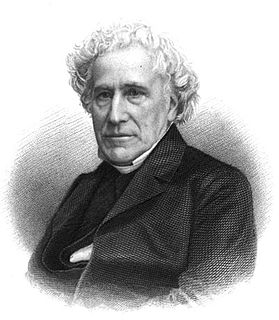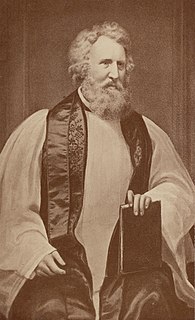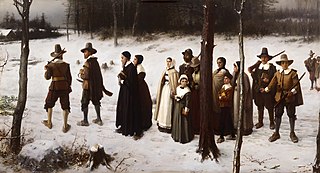Sources
- Dust jacket of The Life of John Gibson: Soldier, Patriot, Statesman
- listing of Gibson's books
- Charles William Hanko at Find a Grave
Charles William Hanko | |
|---|---|
| Born | August 3, 1920 |
| Died | December 7, 1990 (aged 70) |
| Nationality | American |
| Occupation | Historian, Politician |
Charles William Hanko (August 3, 1920 - December 7, 1990) was an American historian and politician.
Hanko ran unsuccessfully as a Republican Candidate for the Pennsylvania State House of Representatives in 1948. He was for a time a professor of history at the Brooklyn Polytechnic Institute in the Dept. of History and Economics. He held a fellowship related to economics at Case Institute of Technology (now part of Case Western Reserve University) in 1954.
Hanko wrote biographies of John Gibson and Matthew Stanley Quay. Other books by Hanko include Economic threats to America and Christian Mobilizing (Neward: Washington Irving Pub. Co., 1955). He also wrote a book The Evangelical Protestant Movement (Educators Pub.Co.,1955) In 1972 Hanko wrote "Suarez and Western Civilization."
Hanko was a member of the Evangelical Congregational Church in McKeesport, Pennsylvania where he was a licentiate minister. This congregation became an Evangelical Protestant Church.
The Christian countercult movement or the Christian anti-cult movement is a social movement among certain Protestant evangelical and fundamentalist and other Christian ministries and individual activists who oppose religious sects that they consider cults.

Evangelicalism, also called evangelical Christianity or evangelical Protestantism, is a worldwide interdenominational movement within Protestant Christianity that affirms the centrality of being "born again", in which an individual experiences personal conversion, the authority of the Bible as God's revelation to humanity, and in spreading the Christian message. The word evangelical comes from the Greek (euangelion) word for "good news".

Christian Zionism is a belief among some Christians that the return of the Jews to the Holy Land and the establishment of the state of Israel in 1948 were in accordance with Bible prophecy. The term began to be used in the mid-20th century in place of Christian restorationism.
John Gibson was a veteran of the French and Indian War, Lord Dunmore's War, the American Revolutionary War, Tecumseh's War, and the War of 1812. A delegate to the first Pennsylvania constitutional convention in 1790, and a merchant, he earned a reputation as a frontier leader and had good relations with many Native American in the region. At age sixty he was appointed the Secretary of the Indiana Territory where he was responsible for organising the territorial government. He served twice as acting governor of the territory, including a one-year period during the War of 1812 in which he mobilized and led the territorial militia to relieve besieged Fort Harrison.
The Evangelical Church or Evangelical Association, also known in the early 1800s as the Albright Brethren, was a "body of American Christians chiefly of German descent", Arminian in doctrine and theology; in its form of church government, Methodist Episcopal.

Jacob Albright was an American Christian leader, founder of Albright's People which was officially named the Evangelical Association in 1816. This church as a denomination is still in existence, headquartered in Myerstown, Pennsylvania.

Churchmanship is a way of talking about and labelling different tendencies, parties, or schools of thought within the Church of England and the sister churches of the Anglican Communion.
The Christian Research Institute (CRI) is an evangelical Christian apologetics ministry. It was established in October 1960 in the state of New Jersey by Walter Martin (1928–1989). In 1974, Martin relocated the ministry to San Juan Capistrano, California. The ministry's office was relocated in the 1990s near Rancho Santa Margarita. In 2005, the organization moved to its present location in Charlotte, North Carolina.

William Augustus Muhlenberg was an Episcopal clergyman and educator. Muhlenberg is considered the father of church schools in the United States. An early exponent of the Social Gospel, he founded St. Luke's Hospital in New York City. Muhlenberg was also an early leader of the liturgical movement in Anglican Christianity. His model schools on Long Island had a significant impact on the history of American education. Muhlenberg left his work in secondary education in 1845.
The Reformed Episcopal Church (REC) is an Anglican church of evangelical Episcopalian heritage. It was founded in 1873 in New York City by George David Cummins, formerly a bishop of the Protestant Episcopal Church.
Toyohiko Kagawa was a Japanese Protestant Christian pacifist, Christian reformer, and labour activist. Kagawa wrote, spoke, and worked at length on ways to employ Christian principles in the ordering of society and in cooperatives. His vocation to help the poor led him to live among them. He advocated for women's suffrage and promoted a peaceful foreign policy.

Letha Dawson Scanzoni is an American independent scholar, writer, and freelance editor. She has authored or coauthored nine books, the most well-known of which are All We're Meant to Be and Is the Homosexual My Neighbor? Scanzoni specializes in the intersection between religion and social issues.

Charles Porterfield Krauth was a pastor, theologian and educator in the Lutheran branch of Christianity. He is a leading figure in the revival of the Lutheran Confessions connected to Neo-Lutheranism in the United States.
Darryl G. Hart is a religious and social historian. Hart is Distinguished Associate Professor of History at Hillsdale College in Hillsdale, Michigan. He previously served as dean of academic affairs at Westminster Seminary California from 2000 to 2003, taught church history and served as librarian at Westminster Theological Seminary in Philadelphia, directed the Institute for the Study of American Evangelicals at Wheaton College, and was Director of Partnered Projects, Academic Programs, and Faculty Development at the Intercollegiate Studies Institute in Wilmington, Delaware. He is an elder in the Orthodox Presbyterian Church.

John Henry Hopkins was the first bishop of Episcopal Diocese of Vermont and the eighth Presiding Bishop of the Episcopal Church in the United States of America. He was also an artist, a lawyer, an ironmonger, a musician and composer, a theologian, and an architect who introduced Gothic architecture into the United States.

Frank Wilson Blackmar was an American sociologist, historian and educator. He served as the 9th President of the American Sociological Society.

Protestantism is a form of Christianity that follows the tenets of the Protestant Reformation: a major movement within Western Christianity that began in the 16th century against what its followers perceived to be errors, abuses, innovations, discrepancies, and theological novums within the medieval Catholic Church.

In the United States, evangelicalism is a movement among Protestant Christians who believe in the necessity of being born again, emphasize the importance of evangelism, and affirm traditional Protestant teachings on the authority as well as the historicity of the Bible. Comprising nearly a quarter of the US population, evangelicals are a diverse group drawn from a variety of denominational backgrounds, including Baptist, Mennonite, Methodist, Holiness, Pentecostal, Reformed and nondenominational churches.

Christianity was introduced with the first European settlers beginning in the 16th and 17th centuries. Colonists from Northern Europe introduced Protestantism in its Anglican and Reformed forms to Plymouth Colony, Massachusetts Bay Colony, New Netherland, Virginia Colony, and Carolina Colony. The first arrivals were adherents to Anglicanism, Congregationalism, Presbyterianism, Lutheranism, Quakerism, Anabaptism and the Moravian Church from British, German, Dutch, and Nordic stock. America began as a significant Protestant majority nation. Significant minorities of Roman Catholics and Jews did not arise until the period between 1880 and 1910.

Christian revivalism is increased spiritual interest or renewal in the life of a church congregation or society, with a local, national or global effect. This should be distinguished from the use of the term "revival" to refer to an evangelistic meeting or series of meetings. Proponents view revivals as the restoration of the church itself to a vital and fervent relationship with God after a period of moral decline.